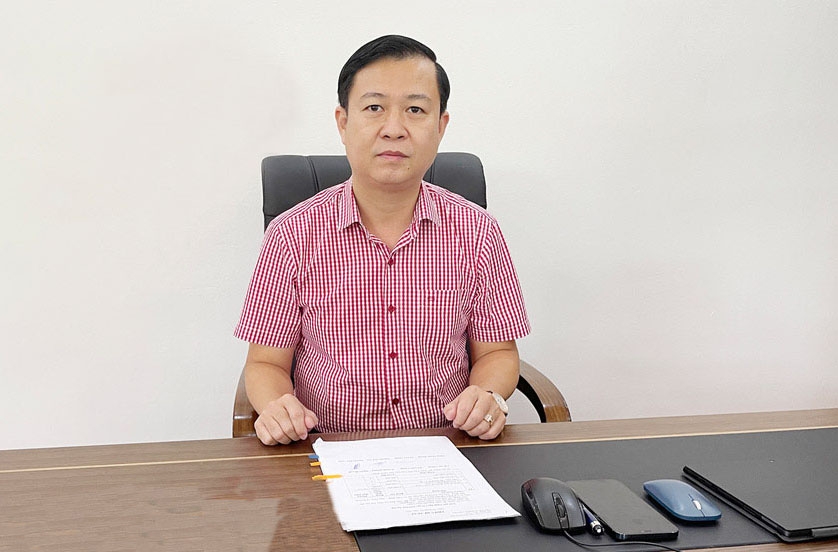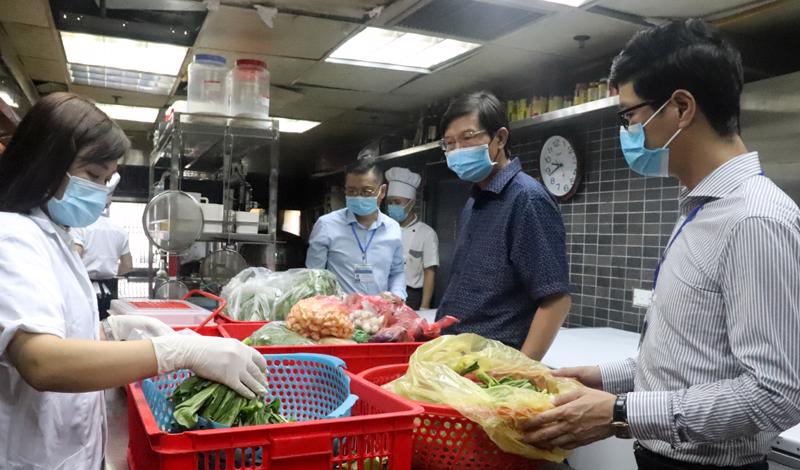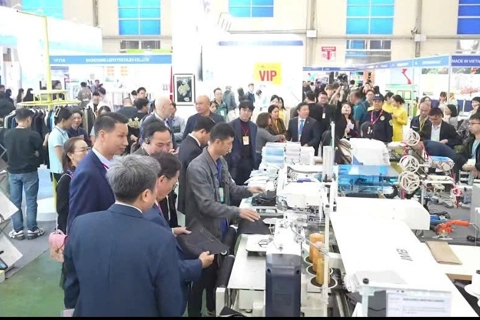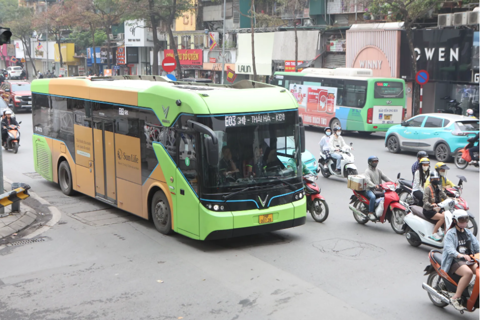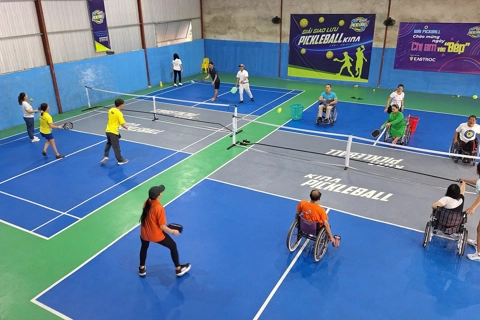Hanoi tightens food safety in new context
Local authorities are expected to continue conducting regular and irregular food safety inspections from now until the end of the year, focusing on food origins.
Head of the Hanoi Food Sub-department Dang Thanh Phong told The Hanoi Times of the authorities’ determination in ensuring food safety in the capital and progress in this regard.
| Head of the Hanoi Food Administration Dang Thanh Phong. |
Amid the action month on food safety in 2022, Hanoi’s inter-disciplinary inspection teams have conducted food safety checks on 30 districts. What is your view on the food safety situation in the city?
During the action month on food safety (April 15-May 15), all inspection teams conducted thorough inspections across all districts in the city and addressed even the most minor issues, aiming to bring the situation back to order.
Most food services establishments and collective catering kitchens have complied with regulations on food safety, and only a minority did not.
Four cross-functional inspection teams visited 40 food services establishments, collective catering kitchens, restaurants, and slaughterhouses during one month. We detected violations in 14 facilities and fined them nearly VND100 million (US$4,220).
The most common violations were expired food safety certificates or insufficient legal documents for operation. Some facilities did not follow the food quality control procedures, from processing to serving customers, or did not store food ingredients in separate places. This could lead to risks of cross-contamination.
To further raise food safety awareness among food services establishments or restaurants, the inspection teams suggested local authorities continue conducting regular and irregular food safety inspections from now until the end of the year, focusing on food origins.
In addition, the authorities should organize training classes for all food service establishments to check food origin and requirements on food safety.
As the city is entering a new context and trying to contain the Covid-19 pandemic, it should prioritize food safety.
The action month on food safety 2022 coincided with the SEA Games 31. During the inspection of hotels, what problems will be addressed?
In those days, we checked every hotel accommodating foreign athletes or tourists to check on food safety. During the process, we observed some problems related to the fact that each sports delegation comes from a different country, with its own culture and lifestyles, so many did not consume food provided by the hotels and instead brought their food along.
However, we request each delegation to inform the hotels about the food and sign a commitment agreement with the lodging establishment to ensure the precise origin of the food and be responsible for their food safety.
We also advised all hotels to keep clean of the kitchen spaces and ensure the origin of food ingredients used during the Sea Games. All those working in the kitchens must take part in training classes on food safety and have their health checked regularly.
| Checking food safety in a restaurant in Hanoi. Photo: Tran Thao |
In the past few years, there have been no significant food-poisoning incidents, which shows the efforts and determination of the city. How do we continue to keep up the momentum in this regard?
As part of the food safety requirements, efforts to prevent food poisoning are a crucial task. Local authorities should conduct frequent inspections to address any issues related to food safety.
The authorities should also raise public awareness of the importance of food safety. Managers and owners of collective catering kitchens or food services establishments are expected to frequently assess their facility conditions, those working in the kitchens, the source of water, and the process of transporting food ingredients.
What are your recommendations for Hanoi to ensure greater efficiency in food safety management in the coming time?
In the past years, overall food safety management in Vietnam, and Hanoi in particular, has achieved encouraging results.
In the coming time, we expect to revise the protocol related to food safety, from food processing to the design of a kitchen, or the human factor during this process, especially the protocol on tracing food origin.
Hanoi has issued a decision on ensuring food safety in the city, with clear responsibility assigned to each party involved.
We also expect closer cooperation between all parties, from the healthcare to the agricultural and trade sector, in supervising food safety compliance in the city.
All localities are requested to prevent food establishments from operating before addressing their violations in food safety.
Thank you for your time!

